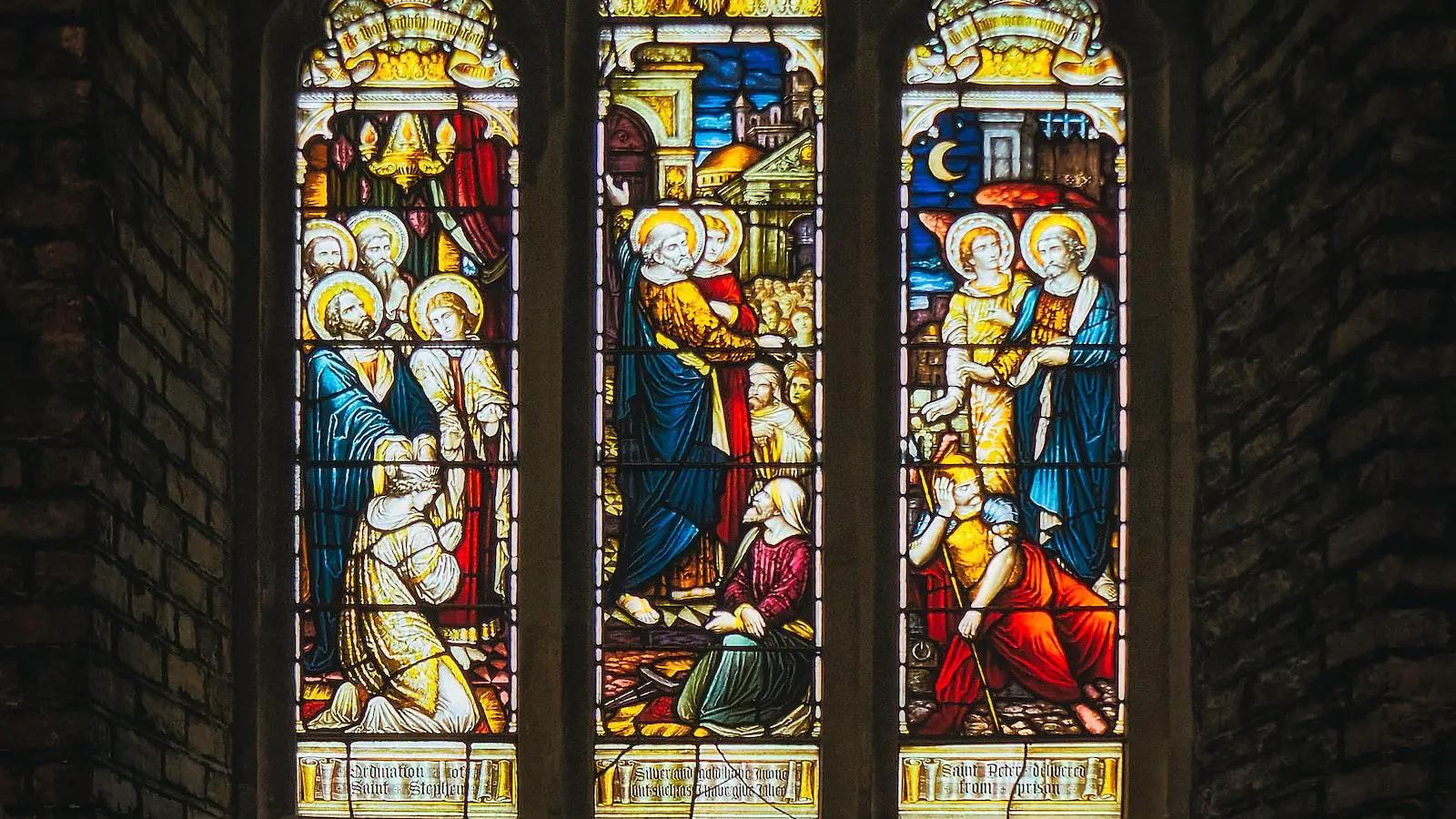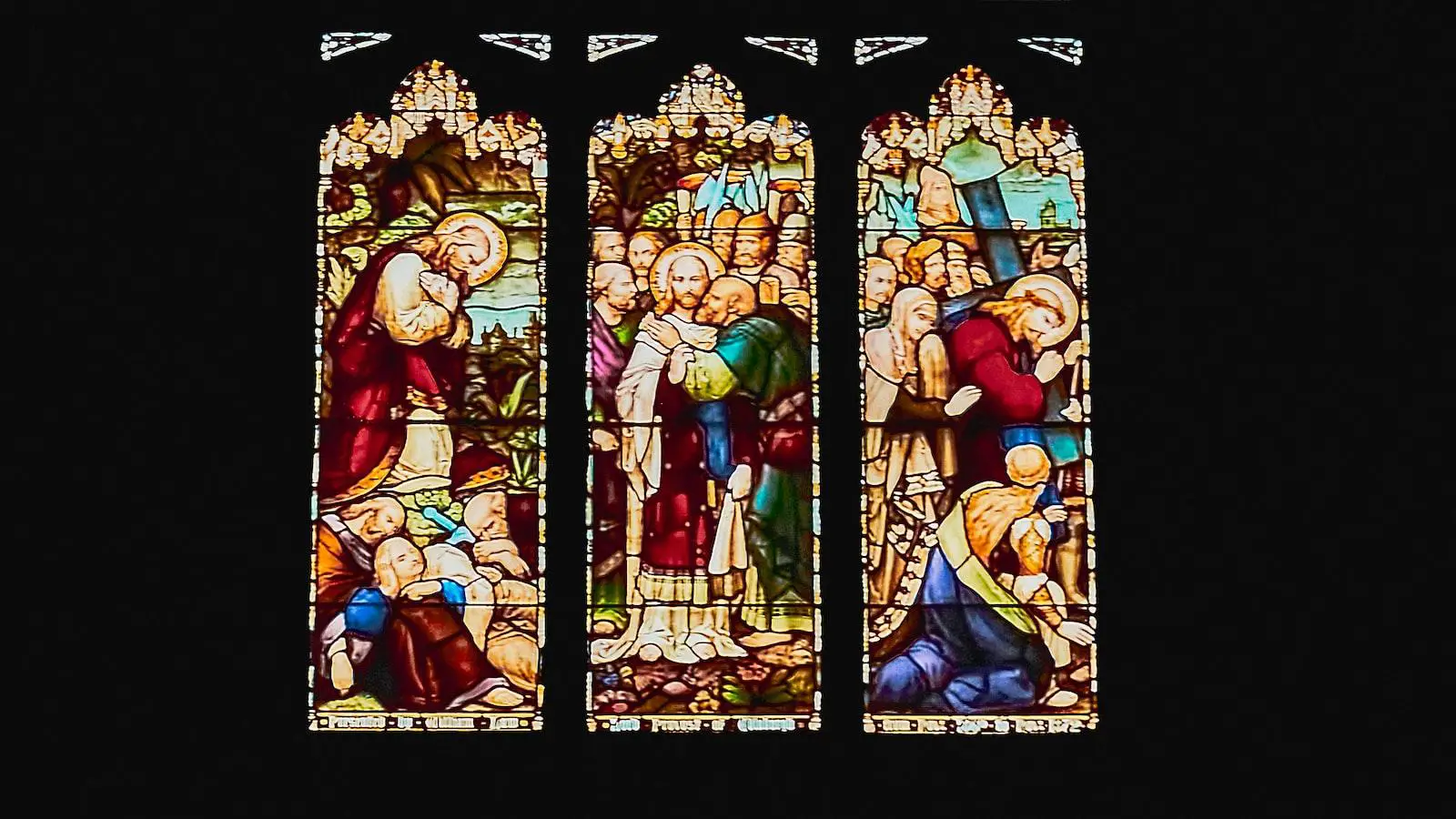Hey there! Have you ever wondered about the biblical meaning of religion? Well, you’re in the right place. In this article, we’re going to explore what the Bible has to say about religion and its significance in our lives. So, if you’re curious to dive into the biblical perspective on this eternal topic, let’s get started!
Understanding the Role of Religion in Biblical Context
The Bible plays a significant role in shaping the understanding of religion and its meaning in the lives of believers. By delving into the biblical context, we can gain deeper insights into the true essence of religion and its purpose. At its core, religion in the Bible encompasses a multifaceted concept that encompasses the relationship between God and humanity, moral values, and the worship and devotion of believers.
The Essence of Religion in the Bible:
- Divine Connection: The Bible portrays religion as a means for individuals to establish a profound connection with God. It emphasizes the importance of faith, prayer, and spiritual fellowship in developing a personal relationship with the divine.
- Ethical Framework: Religion, as depicted in the Bible, provides a moral compass for adherents. It lays down principles and commandments that guide believers in leading a righteous and virtuous life.
- Worship and Devotion: The Bible demonstrates that religion involves not only belief and ethical conduct but also acts of worship and devotion. It highlights the significance of rituals, ceremonies, and communal gatherings in expressing reverence and gratitude towards God.
Interactions Between Religion and Society:
Throughout the Bible, the interplay between religion and society is evident. Religion influences cultural practices, societal norms, and ethical behavior. It shapes individuals and holds communities accountable for their actions, fostering unity, justice, and compassion.
Role of Religion in Personal Transformation:
- Inner Spiritual Growth: The Bible emphasizes that religion has the power to transform individuals from within. It encourages believers to seek personal spiritual growth, deepening their faith, and nurturing their character through the teachings and guidance found in scripture.
- Hope and Comfort: Religion, as understood in the biblical context, offers solace and hope during times of adversity. It provides a source of strength, reassurance, and a belief in the transcendent purpose and meaning behind life’s challenges.
| Aspect | Description |
|---|---|
| Moral Guidance | The Bible provides a moral framework for believers to lead righteous lives based on God’s commandments and teachings. |
| Communal Worship | Religion in the biblical context involves gathering as a community to express praise, prayer, and gratitude towards God. |
| Interconnectedness | The Bible underscores the interconnectedness between individuals, society, and a higher spiritual reality through religious practices. |
Conclusion:
Exploring the role of religion in the biblical context reveals its multifaceted nature, encompassing spiritual connection, moral guidance, worship, societal influence, personal transformation, and a source of hope. By understanding the biblical meaning of religion, we can cultivate a deeper appreciation for its significance in our lives and its transformative impact on both individuals and communities.

Exploring the Deep Connection Between Religion and Faith in the Bible
When delving into the depths of the Bible, one cannot help but recognize the profound connection between religion and faith. Although the two terms are often used interchangeably, their meanings differ subtlety. While faith primarily refers to an individual’s personal belief in a higher power or divine being, religion encompasses a broader sociocultural system that incorporates rituals, traditions, and organized practices to express and nurture that faith.
<p>The Bible, as a foundational religious text, provides invaluable insights into the interplay between religion and faith. It showcases countless stories of individuals who navigate their spiritual journey, offering lessons and wisdom for believers across generations. Through its vivid narratives, the Bible establishes the significance of religious observance in fostering and nurturing faith, emphasizing the importance of communal worship, prayer, and obedience to divine teachings.</p>
<p>Moreover, the Bible elucidates how religion serves as a unifying force, bonding individuals with a shared faith. It highlights the power of religious communities in providing support, guidance, and a sense of belonging. These communities not only offer spaces for believers to gather and practice their faith, but also facilitate opportunities for spiritual growth and the deepening of one's relationship with the divine.</p>
<p>In essence, the biblical meaning of religion transcends mere adherence to doctrines and rituals. It encourages believers to cultivate a sincere and intimate relationship with their faith, while staying connected to their fellow worshipers. By combining personal faith with communal practices, the Bible underscores the importance of an all-encompassing spirituality that enriches both the individual and the broader religious community.</p>
Unraveling the Significance of Religious Practices in the Bible
The Bible serves as a significant source for understanding religious practices and their meaning. Within its pages, numerous rituals, customs, and traditions are documented, each carrying a deeper significance that sheds light on the overall biblical meaning of religion. These practices serve as a way to connect individuals with their faith, express devotion, and strengthen their relationship with God.
<p>One <a href="https://meaning-of.net/religion/bible/grace/" title="Biblical Meaning of Grace">key aspect</a> of religious practices in the Bible is the concept of sacrifice. From the earliest stories of Cain and Abel to the rituals outlined in Leviticus, the act of offering sacrifices was considered a crucial means of worship. Sacrifices symbolized surrendering something of value to honor God, expressing gratitude, seeking forgiveness, or seeking protection. Whether it was animals, produce, or the sacrifice of oneself through self-discipline, sacrifices played a pivotal role in biblical religions.</p>
<p>Another essential religious practice highlighted in the Bible is the observance of holy festivals and celebrations. These occasions served as a time for communal worship, remembrance of God's miracles, and reflection on the ever-present divine presence. Festivals such as Passover, Pentecost, and Yom Kippur were marked by specific rituals, prayers, and food offerings, fostering a strong sense of community and emphasizing the importance of collective faith.</p>
<p>The use of symbols and symbolism stands as a significant element in biblical religious practices. Symbolism helped convey complex theological concepts in a way that was accessible to ordinary individuals. Objects like the Ark of the Covenant, the Menorah, or the symbolism of bread and wine in the New Testament all contributed to the deeper understanding of faith and its connection to everyday life. These symbols functioned as tangible reminders of God's presence and served as a unifying force for believers.</p>
Discovering the Surprising Cultural Influence of Religion in the Bible
The Bible, a collection of sacred texts revered by billions around the world, holds a profound cultural influence that extends far beyond its religious significance. Embarking on a journey through the biblical landscape reveals the surprising depth to which religion has shaped various aspects of human civilization. From art and literature to language and societal norms, the biblical meaning of religion is intertwined with our past and continues to impact our present in remarkable ways.
1. Artistic Expressions: The Bible has served as a muse for countless artists across different periods and cultures. Its stories and themes have inspired iconic masterpieces that display religious devotion, moral teachings, and captivating narratives. From Michelangelo’s ceiling of the Sistine Chapel depicting scenes from Genesis to Da Vinci’s enigmatic “Last Supper,” the biblical influence on art spans centuries, leaving an indelible mark on the world’s cultural heritage.
2. Literary Legacy: The Bible’s extensive literary influence is undeniable. Its stories, parables, and metaphors have permeated literature throughout history, providing a rich foundation for storytelling. Authors like Shakespeare and John Milton drew inspiration from biblical tales, incorporating characters and motifs into their works. The Bible’s impact on the literary world is not limited to ancient texts; it continues to resonate with contemporary authors who explore its complex moral and philosophical themes.
3. Language and Idioms: The biblical text has bequeathed us a wealth of idioms and expressions that have become everyday linguistic staples. Phrases such as “the writing on the wall,” “apple of my eye,” and “sour grapes” all find their origins in the Bible. These idioms have transcended religious boundaries and become integral parts of our vernacular, highlighting the profound influence the Bible’s religious teachings have had on language and communication.
4. Societal Norms and Values: The moral principles and ethical guidelines found in the Bible have played a significant role in shaping societal norms. Concepts like justice, mercy, and compassion find their roots in biblical teachings and have shaped the foundations of our legal systems, social structures, and personal values. Even in secular societies, the influence of the Bible’s religious teachings can be observed in the pursuit of fairness and the promotion of empathy and kindness.
So, there you have it – a glimpse into the biblical meaning of religion. We’ve explored its origins and its role in both ancient and modern society. It’s fascinating how various interpretations and practices have evolved over time, but at the core of it all, religion remains a profound and deeply personal experience for believers.
The Bible serves as a guide, offering moral and ethical values that have shaped our understanding of spirituality and our relationship with the divine. Whether you consider yourself religious or not, there’s no denying the impact that religion has had on civilizations throughout history.
Remember, the biblical meaning of religion is not merely a set of rituals and dogmas; it goes beyond that, emphasizing a connection with something greater than ourselves. It’s about finding purpose, seeking answers, and cultivating a sense of faith that resonates within our hearts.
Understanding the biblical meaning of religion allows us to appreciate the diversity of beliefs and the rich tapestry of human spirituality. It invites us to engage in thoughtful conversations and mutual respect, regardless of our own personal convictions.
So, whether you find solace in attending religious services or find your spirituality in nature, the Bible’s insights into the meaning of religion can help us navigate the complexities of the human experience. At the end of the day, it’s up to each individual to uncover the deeper significance of religion and weave it into the fabric of their lives.
We hope this exploration has sparked your curiosity and shed light on the biblical understanding of religion. As we continue on our individual journeys, may we strive for understanding, compassion, and a deeper appreciation of the diverse ways in which religion shapes our world.

